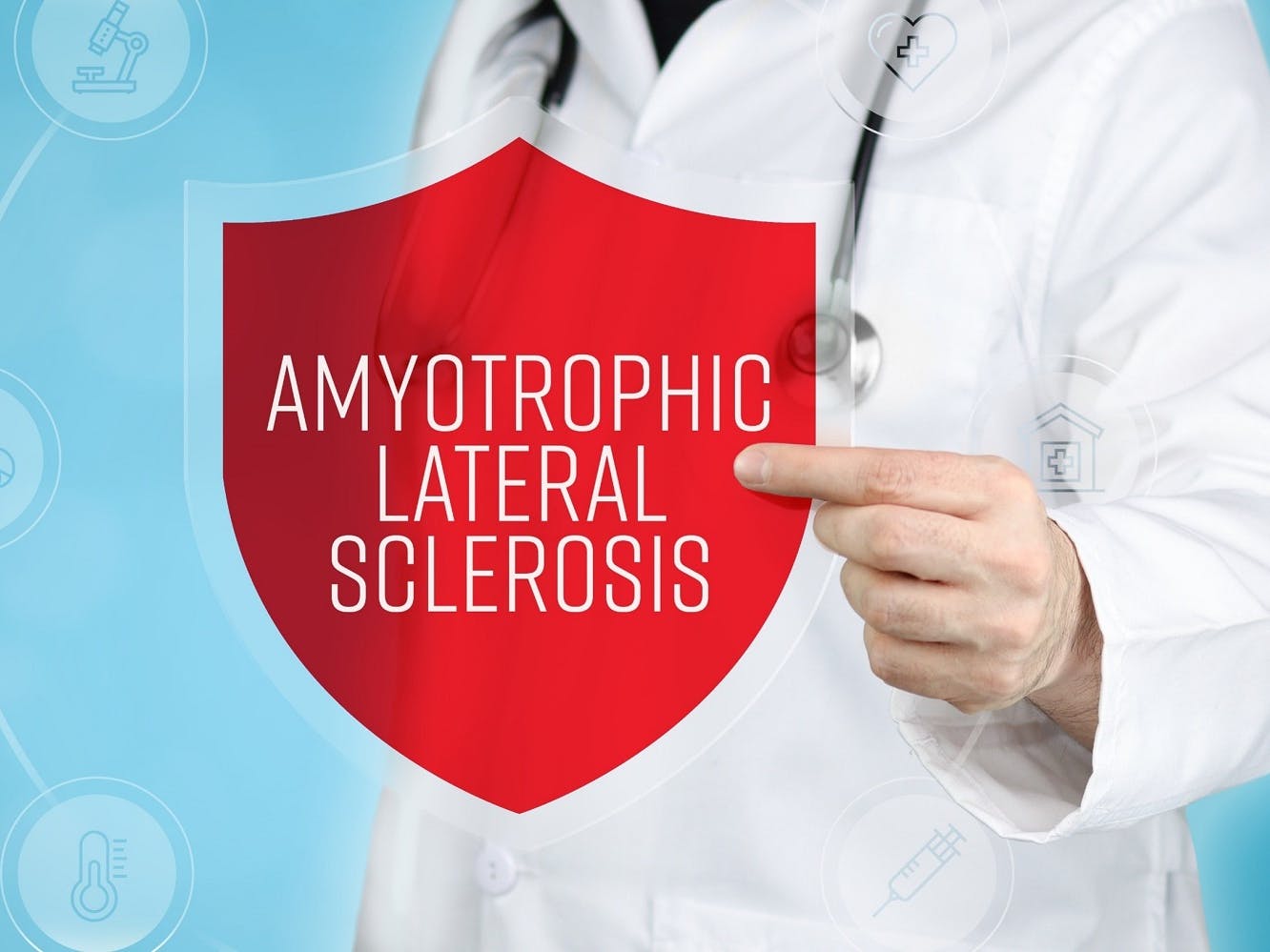
ALS (amyotrophic lateral sclerosis) is a challenging diagnosis. But drugs and supportive therapies can help patients live well longer.
Mon-Thur 9am-7pm | Fri 9am-6pm EST
It’s not an easy diagnosis. ALS, which stands for amyotrophic lateral sclerosis, is a progressive and fatal disease that affects nerve cells in the brain and spinal cord.
ALS affects people of all ages and walks of life. Physicist Stephen Hawking and baseball legend Lou Gehrig both battled it. (The disease is sometimes called Lou Gehrig’s disease.) Bryan Randall, the partner of actor Sandra Bullock, died of the disease last summer.
What is ALS?
ALS causes motor neurons to degenerate and eventually die. These are cells that control muscles by sending signals from the brain to the spinal cord.
As a result, patients stop being able to control their movement. Eventually, they lose the ability to speak, eat, move, and breathe.
The average life expectancy for someone with ALS is three to five years. But one in 10 people with the disease will live for 10 years or longer.
Causes of ALS
The cause of ALS is a bit of a mystery. It can occur out of the blue and may come from exposure to toxins in the environment or a virus. There are also risk factors, such as smoking.
In up to 10% of patients with ALS, there is a genetic link. This type of ALS is referred to as familial.
"It is always a combination of factors," Neil Thakur, the chief mission officer of the ALS Association, told the BBC. "Even if you have a risk factor or the genetic profile, it is not 100% sure you will get ALS."
Symptoms of ALS
ALS comes on gradually and in different ways. In most cases, it starts in a hand or foot and then affects the entire limb before affecting another one. Early symptoms of this type of onset include:
- Muscle weakness without pain
- Muscle stiffness
- Problems walking and tripping
- Involuntary jerking in a limb
- Muscle cramping and twitching
- Problems with motor tasks like buttoning a button
In most other cases, people first have problems with muscles that control speech and swallowing. They may experience these symptoms:
- Choking on liquids
- Hoarseness
- Slurred speech
- Drooling
- Laughing or crying uncontrollably
Other signs of ALS:
- Trouble breathing and shortness of breath
- Changes with mood and behavior, such as irritability and acting out of character
- Lack of motivation
Diagnosing ALS
It’s not always easy to get a diagnosis of ALS. That’s because there isn’t one single test for the disease, and other disorders have overlapping symptoms. These include Lyme disease, myasthenia gravis, and brain tumors.
To help determine if ALS is causing your symptoms, your doctor may perform lab tests or take X-rays or MRIs. They may look at a sample of your cells under a microscope. Other tests include a spinal tap, which involves taking a sample of your spinal fluid, and electrodiagnostic tests, which measure electrical activity in your muscles.
If there is any doubt about your diagnosis, it’s important to see a neurologist who specializes in ALS. Sometimes, people are misdiagnosed with another disease first. That can result in unnecessary treatments, such as surgery for carpal tunnel syndrome.
How ALS progresses
ALS is different for everyone who has it. For some people, it spreads quickly through the body. In others, it is a slower process.
Over time, people with the disease need help with eating, mobility, and general self-care. Eventually, they need a ventilator to help them breathe.
Although ALS impairs movement, it usually does not affect the senses like sight, hearing, touch, or taste. Bladder, bowel, and sexual functions also stay the same. The ability to think usually isn’t affected.
Treatment for ALS
There isn’t a cure for ALS. However, several FDA-approved drugs can slow the progress of the disease or help with symptoms. One commonly prescribed medication is riluzole, which may reduce the damage to nerve cells. Another medication, edaravone, may help slow the decline in some patients.
Physical therapy is a crucial part of managing ALS. Therapists work with patients to stay mobile, strengthen muscles, and manage pain. Occupational therapy helps individuals to perform daily tasks and stay independent for as long as possible.
Learn about Medicare coverage for physical, occupational, and speech therapy.
Speech therapists can provide strategies and exercises to improve communication and prevent problems related to swallowing. And assistive devices like wheelchairs, braces, and communication devices can keep ALS patients engaged in daily activities.
Coping with a progressive disease can be emotionally challenging. Support groups or counseling can provide a space to share experiences and receive guidance.
People with ALS often manage their care better if they attend an ALS clinic regularly. Clinics provide care from a team of specialists who come up with a treatment plan tailored to each patient. Research shows it can help extend a patient’s life and improve their quality of life.
Participating in a clinical trial
It can feel good to participate in a clinical trial or other research study. Researchers are conducting studies to learn about the genes that might cause the disease and ways to stop the process that leads to the death of brain cells.
Knowing you may be making a difference for someone diagnosed in the future can bring you a sense of peace. Ask your doctor if there are opportunities near you.
Signing up for Medicare
People who have been diagnosed with ALS are immediately eligible for Medicare. According to the ALS Association, it’s important to start this process as early as possible to minimize the financial impact of the disease. To sign up for Medicare, a patient must first qualify for Social Security Disability Insurance (SSDI) and receive benefits.
Find out how to apply for Social Security Disability Insurance.
Medicare policies should pay for home health providers, which can help patients live more independently with ALS. Coverage for nursing homes (for the first 100 days) and hospital facilities is also part of all Medicare coverage plans. For help navigating the system as an ALS patient, contact the ALS Association in your state.
Additional Resources
- ClearMatch Medicare: Find a Medicare Plan
- ALS Association: ALS.org
- BBC: The Mystery of Why Some People Develop ALS



